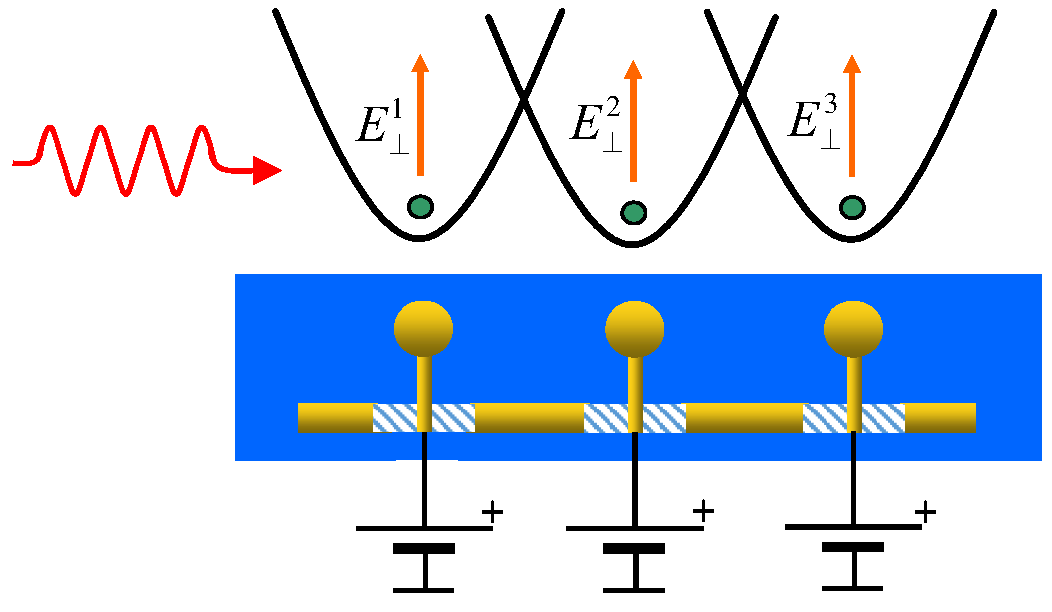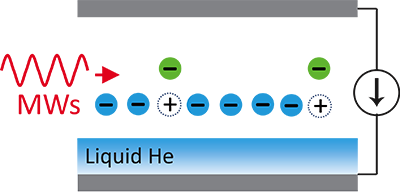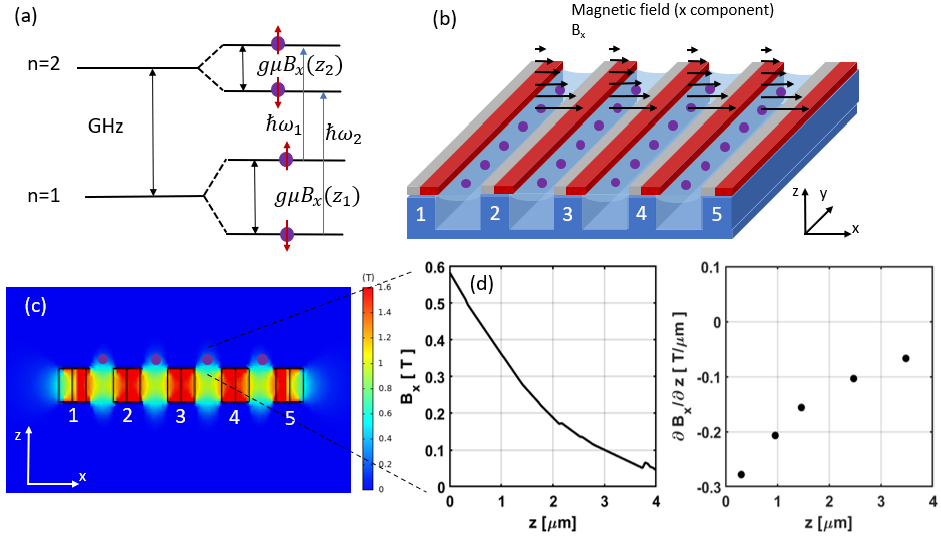Electron Qubits on Helium
 The interest in using quantum states of the electrons on liquid helium as quantum bits has been recently growing since the system is free of impurities and defects, thus it can serve as an ideal platform with which to realize a quantum computer. In particular, spin states of the electrons on helium are expected to have a longer coherence time than in any other materials. We aim to experimentally demonstrate the indispensable functions of quantum computation such as read-out, control and initialization of the spin states of the electrons on helium using the interaction between the spin states and the Rydberg states.
The interest in using quantum states of the electrons on liquid helium as quantum bits has been recently growing since the system is free of impurities and defects, thus it can serve as an ideal platform with which to realize a quantum computer. In particular, spin states of the electrons on helium are expected to have a longer coherence time than in any other materials. We aim to experimentally demonstrate the indispensable functions of quantum computation such as read-out, control and initialization of the spin states of the electrons on helium using the interaction between the spin states and the Rydberg states.
Spin-Rydberg Interaction and Electron Spin Qubits
Although the intrinsic spin-Rydberg interaction is vanishingly small, we can introduce an artificial one by a local magnetic field gradient which can be created by a ferromagnetic materal placed near the qubit in an external magnetic field. Our current work is focused on detection of the spin states of electrons on helium via the Rydberg state detection. In order to creat sufficiently strong magnetic field gradient (~103 Gauss/micron), we are placing electrons in a microchannel structure which contains stripes of magnetic material (Cobalt), and detect the microwave excited orbital Rydberg states of electrons using the image-charge detection method (see below).
Image-Charge Detection
 We are currently working on the read-out of the qubit states. Recently, we have proposed and experimentally demonstrated a new method to detect the transitions between different Rydberg states of the electrons, called image-charge detection. The image-charge detection can be readily extended to the detection of the transitions between Rydberg states of a single electron and can potentially be used to realize a nondestructive readout of the spin state of a single electron with the help of the spin-Rydberg interaction.
We are currently working on the read-out of the qubit states. Recently, we have proposed and experimentally demonstrated a new method to detect the transitions between different Rydberg states of the electrons, called image-charge detection. The image-charge detection can be readily extended to the detection of the transitions between Rydberg states of a single electron and can potentially be used to realize a nondestructive readout of the spin state of a single electron with the help of the spin-Rydberg interaction.
E. Kawakami, A. Elarabi, and D. Konstantinov
Phys. Rev. Lett. 123, 096801 (2019) ![]()
E. Kawakami, A. Elarabi, and D. Konstantinov
Phys. Rev. Lett. 126, 106802 (2021)




